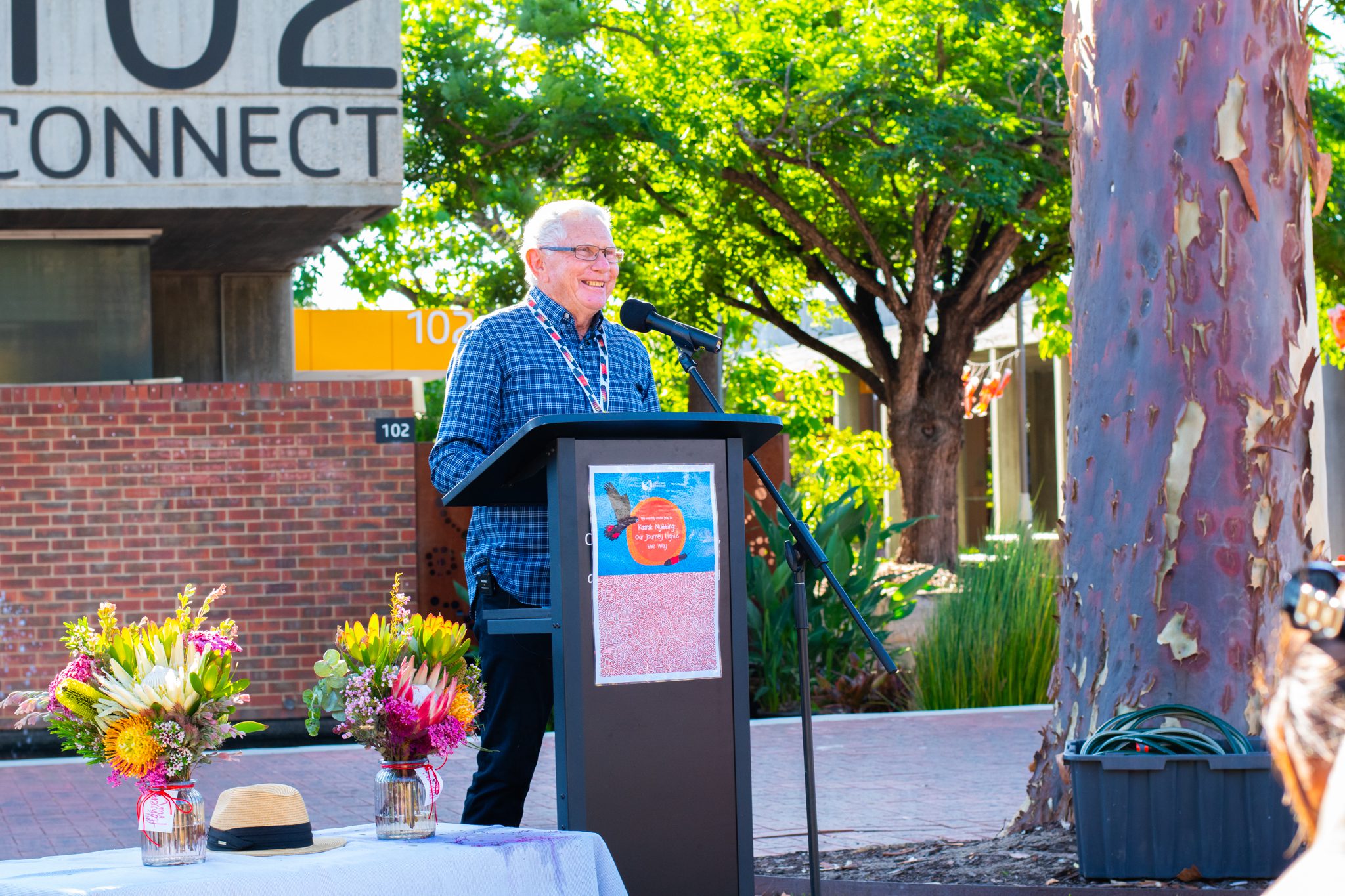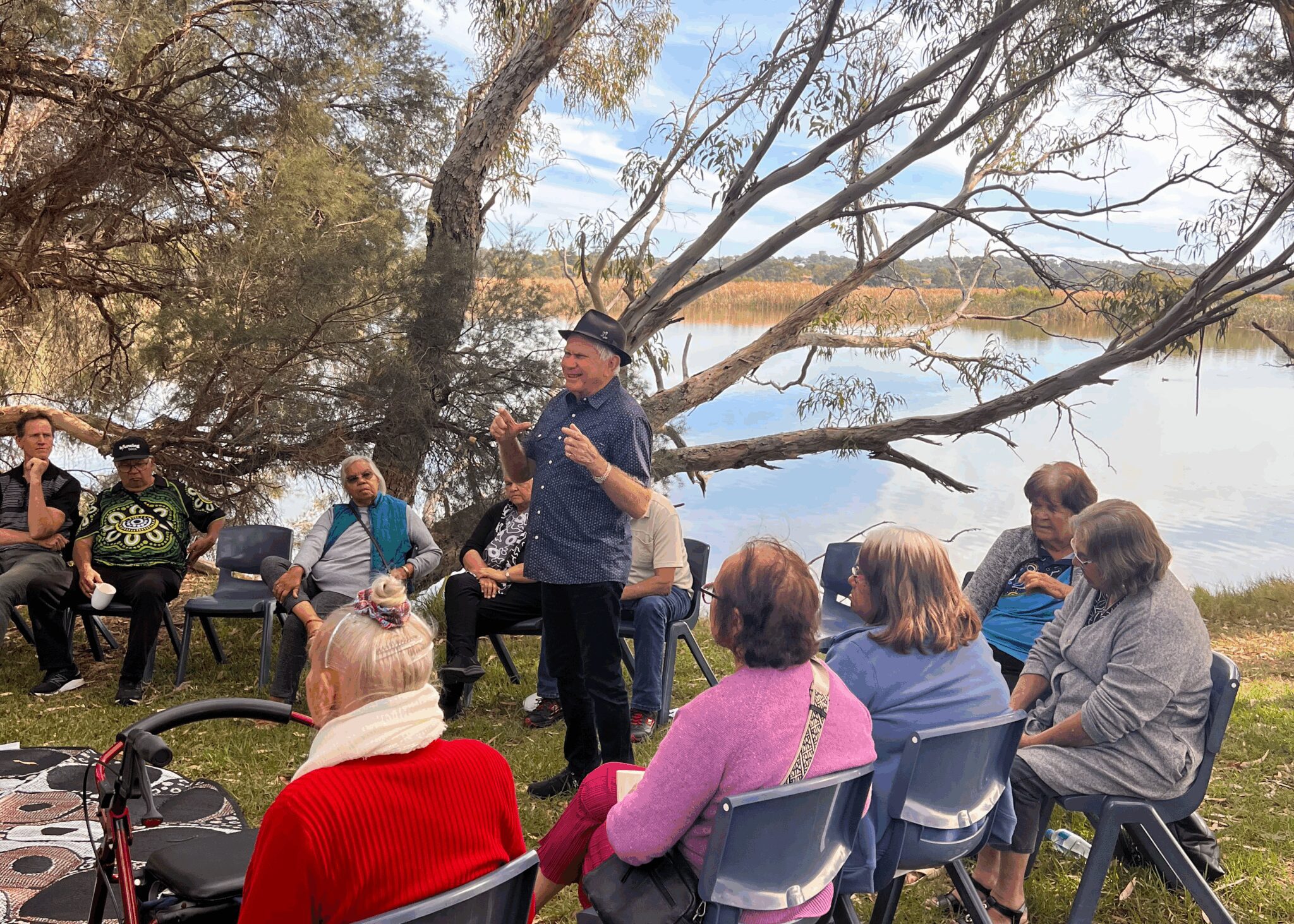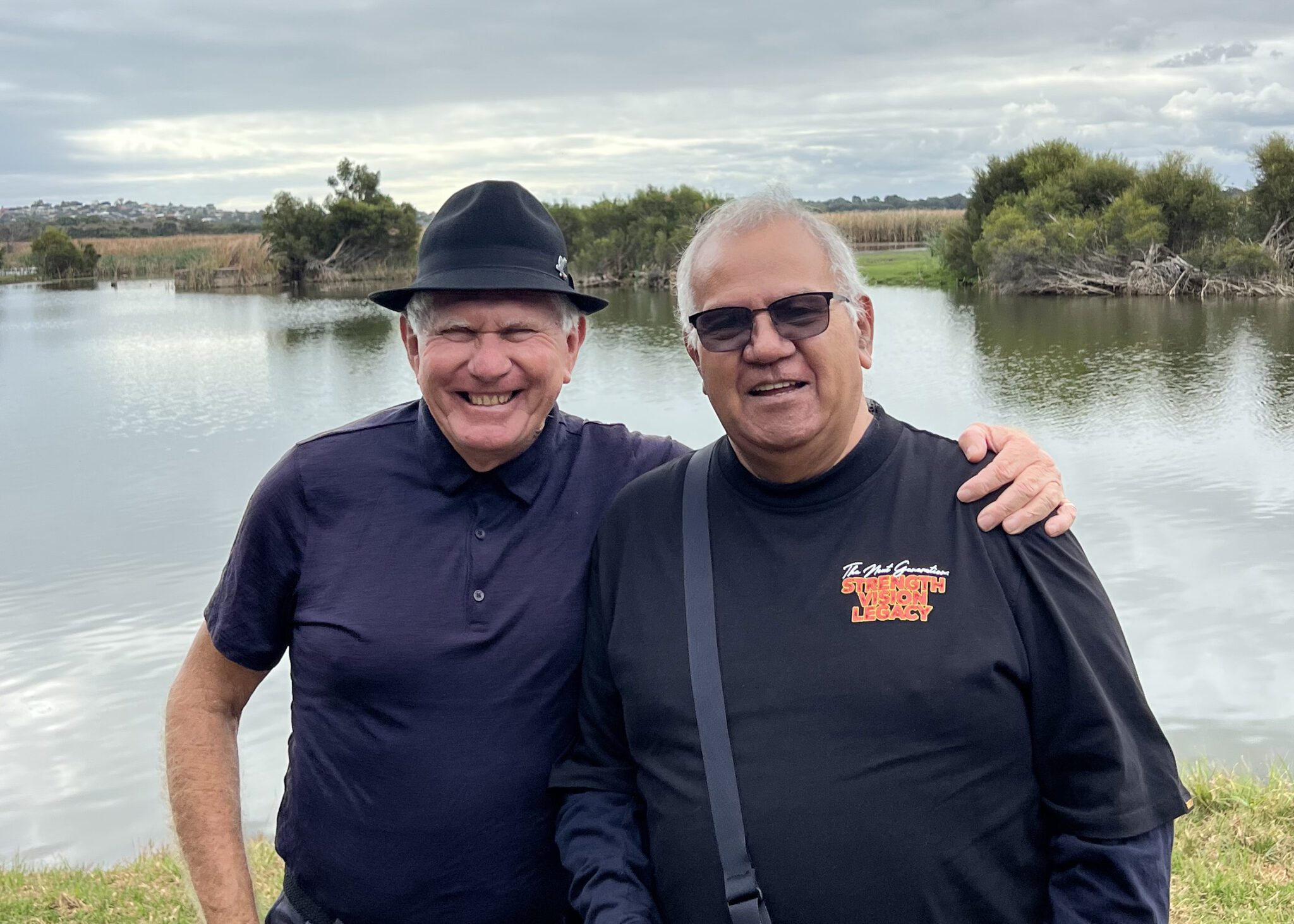There’s a word in Noongar language – debakarn. It means steady, to go steady.
It’s a principle that has guided the life and work of Yuat Noongar man and Curtin University Associate Professor Michael Wright.
Associate Professor Wright was the lead investigator on two National Health and Medical Research Council (NHMRC) funded projects that have reshaped the ways Aboriginal people are supported in mental health services across Western Australia.

Fixing a ‘broken’ system
Early in his career as a social worker, Associate Professor Wright came to realise a hard truth: the mental health system was failing Aboriginal families.
“They weren’t getting the help they needed because the system was never designed with them in mind.”
“It is common knowledge that Aboriginal people experience significantly lower health and wellbeing compared to other Australians.”
“Sadly, they are twice as likely to die from suicide and almost three times more likely to experience high psychological distress.”
Aboriginal people face significant barriers in accessing mental health services, due primarily to the lack of culturally responsive services and a deep mistrust of the mental health system.

“It’s about simply who gets a place at the table in discussing what healing looks like. And for too long, it hasn’t been us, our mob, Aboriginal people.”
“We are rarely, involved or ever truly consulted in what mental health care should look like for our people. Therefore, services don’t consider or even believe, other options need to be considered for our wellbeing, such as family, culture and Country.”
“For us to move forward, we, Aboriginal people and service providers, needed to build relationships and create together another narrative in order to influence and drive the process of change.”
“Debakarn has become the Looking Forward team’s mantra because in reality there is no quick fix to transform a system whose worldview has been designed for it only to work for some.”
Looking Forward
Associate Professor Wright is the project lead of Looking Forward, Moving Forward – a NHMRC funded project aimed at changing the way mental health services work with, and for, Aboriginal people.
The project is guided by Elders through the Noongar concept of ‘Burdiya to Burdiya’, or ‘Boss to Boss’.
“Elders are central to our work. They know intimately the needs of community,” Associate Professor Wright said.
“They’re the ones who hold our stories, our history and our cultural knowledge. They know through their own lived experience what healing looks like for Aboriginal people.”

“In the past, services thought they were doing the right thing by just inviting Elders to meetings – but unfortunately, that is not enough. It’s not just about them being in the room. It’s about them leading the work.”
“The Elders are co-researchers in our projects because there simply is no project without them.”
“Our research over the past fourteen years has involved over thirty Elders living in the Perth region in partnership with service providers.”
Together, they developed the Debakarn Koorliny Wangkiny (‘Steady Walking and Talking’) Conditions for Engaging Framework.
“This framework outlines the conditions necessary to build strong and meaningful relationships between the services and local communities.”
“It is centred on Aboriginal knowledge systems, values and protocols to create a space where Aboriginal people are seen, heard and safe within systems of care,” Associate Professor Wright said.
The framework has since been implemented in mental health and drug and alcohol services across the WA region.
Key findings from the Looking Forward project have also been integrated into the Curtin School of Allied Health curriculum ensuring that future generation of practitioners are equipped to work in culturally responsive ways.
Fourteen years on, Looking Forward continues to make steady gains.
In 2019, Associate Professor Wright and the team were awarded $2.45 million in funding through the Medical Research Future Fund for a new Curtin-led project titled ‘Our Journey, Our Story’ which builds on the work of Looking Forward.
The team worked with Elders, young people and non-profit organisation, headspace, to co-design more culturally secure mental health services for Aboriginal youths.
Moving Forward
His research revealed what many Aboriginal people already knew at heart: when Aboriginal people are given space to lead, change can happen.
But that change didn’t happen overnight. It took the rebuilding of trust through meaningful relationships. It took debakarn.
“We had to move slow to move right but that’s how real lasting change happens,” Associate Professor Wright said.
“And it doesn’t just benefit our mob, it’s good for us all.”
And in that steady way, the work continues.
This piece was featured in Impact Focus – a quarterly newsletter bringing you the latest in Curtin research. Sign up here to get it delivered straight to your inbox!


